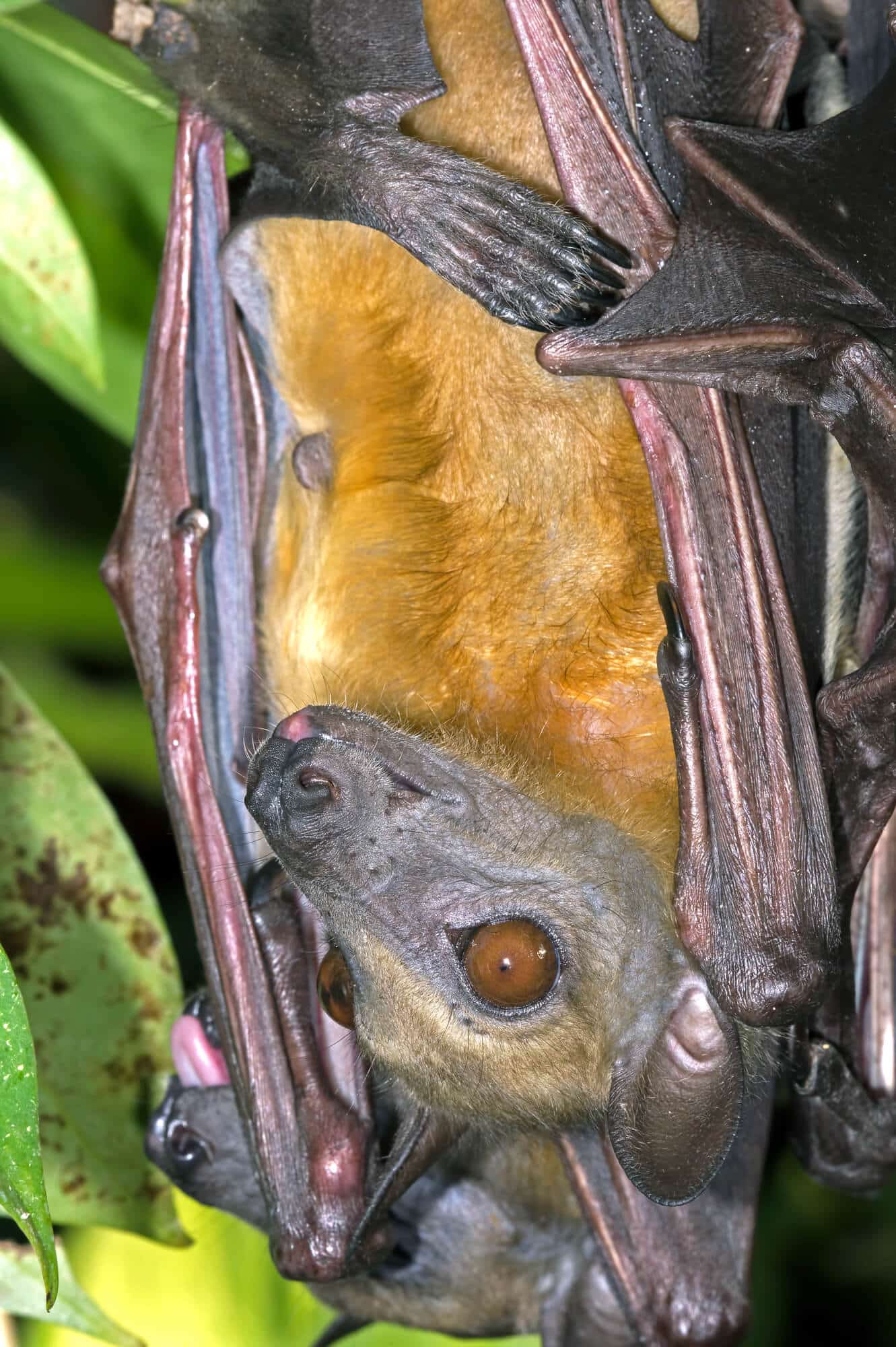Researchers found for the first time that bats navigate during the day using a combination of excellent vision and locating the echoes in their environment

A new study by Tel Aviv University found that fruit bats use their biological sonar even during the day, despite the fact that their vision is excellent and apparently they do not need to locate echoes (echolocation) returning from the environment. The researchers estimate that the reason for this is due to the great accuracy provided by the sonar system, so that echolocation is actually another tool that helps the eye to make sure that they are navigating well - similar to a person crossing the road who, in addition to seeing, also uses the sense of hearing to make sure that the road is clear.
The research was conducted under the direction of Prof. Yossi Yuval, head of the Sagol School of Neuroscience and a researcher at the School of Zoology in the Faculty of Life Sciences, and the Steinhardt Museum of Nature at Tel Aviv University. The research was led by doctoral student Ofri Eitan in collaboration with Dr. Maya Weinberg, Dr. Sasha Danilovich and Reut Asa - all from Tel Aviv University and Yuval Barkai (urban nature photographer). The study was recently published in the journal Current Biology.
The researchers explain that as a rule, bats are mainly active at night and echolocation is the tool by which they navigate their way in the hours of darkness. However, according to them, in recent years we have witnessed a growing phenomenon in the State of Israel, mainly in Tel Aviv (but also in other cities), in which fruit bats (the Egyptian fruit bat) wander for pleasure even during the day. In the current study, the researchers wanted to examine what happens when the bats are active during the day, and whether even in good visibility conditions they use their unique sense.
As part of this, the researchers tested for the first time in the world the activity and behavior of the fruit bat during the day. The research was carried out with the help of photographing and recording (audio) the activity of bats during the day in three different situations: in the morning when they go out for activity around Tel Aviv. Later in the day, when they tan in the sycamore trees in Tel Aviv, and also when they drink water from an artificial pool. In each of these situations, the bats used echolocation.
Ofri Eitan explains: "We compared landings and flying between the trees and discovered that upon landing the bats increase the rate of their calls and this is to correct the echoes from the environment. In addition, we noticed that even in the water pools, the bats increased the rate of calls before the contact with the water and decreased (and sometimes stopped completely) after leaving the water in an open area. On the other hand, there were cases where the bats came out of the water and there was a wall in front of them, and also in these cases they returned to echolocation, so all our results show that the fruit bats make functional use of echolocation."
Prof. Yossi Yuval concludes: "Our results are unequivocal and show that fruit bats make frequent use of echolocation even during the day when visibility is good. In our opinion, this is due to the fact that echolocation helps bats more accurately measure the distances of objects in the environment and that they connect the visual information together with the auditory information in their minds. The research actually shows how important integration between different senses is, just as we humans connect visual information and auditory information, for example when we cross a road."
to mamThe scientific R
More of the topic in Hayadan:

2 תגובות
happily.
I would appreciate proper credit for the video.
Photo: Yuval Barkai
You can also add the Instagram @bats.tlv